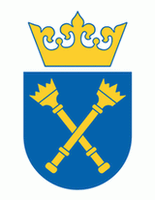Intellectual
An intellectual is a person who engages in critical thinking, research, and reflection about society and proposes solutions for its normative problems. Some gain authority as public intellectuals. Coming from the world of culture, either as a creator or as a mediator, the intellectual participates in politics either to defend a concrete proposition or to denounce an injustice, usually by rejecting, producing or extending an ideology, and by defending a system of values.
Intellectual Property
Intellectual property (IP) is a category of property that includes intangible creations of the human intellect, and primarily encompasses copyrights, patents, and trademarks. It also includes other types of rights, such as trade secrets, publicity rights, moral rights, and rights against unfair competition. Artistic works like music and literature, as well as some discoveries, inventions, words, phrases, symbols, and designs, can all be protected as intellectual property. It was not until the 19th century that the term "intellectual property" began to be used, and not until the late 20th century that it became commonplace in the majority of the world.
Law
Law is a system of rules that are created and enforced through social or governmental institutions to regulate behavior. Law is a system that regulates and ensures that individuals or a community adhere to the will of the state. State-enforced laws can be made by a collective legislature or by a single legislator, resulting in statutes, by the executive through decrees and regulations, or established by judges through precedent, normally in common law jurisdictions. Private individuals can create legally binding contracts, including arbitration agreements that may elect to accept alternative arbitration to the normal court process. The formation of laws themselves may be influenced by a constitution, written or tacit, and the rights encoded therein. The law shapes politics, economics, history and society in various ways and serves as a mediator of relations between people.
Media
Media may refer to:
New Media
New media are forms of media that are native to computers, computational and relying on computers for distribution. Some examples of new media are websites, mobile apps, virtual worlds, multimedia, computer games, human-computer interface, computer animation and interactive computer installations.
Property
Property, in the abstract, is what belongs to or with something, whether as an attribute or as a component of said thing. In the context of this article, it is one or more components (rather than attributes), whether physical or incorporeal, of a person's estate; or so belonging to, as in being owned by, a person or jointly a group of people or a legal entity like a corporation or even a society. Depending on the nature of the property, an owner of property has the right to consume, alter, share, redefine, rent, mortgage, pawn, sell, exchange, transfer, give away or destroy it, or to exclude others from doing these things, as well as to perhaps abandon it; whereas regardless of the nature of the property, the owner thereof has the right to properly use it (as a durable, mean or factor, or whatever), or at the very least exclusively keep it.
Law
True law is right reason in agreement with nature; it is of universal application, unchanging and everlasting; it summons to duty by its commands, and averts from wrong-doing by its prohibitions. And it does not lay its commands or prohibitions upon good men in vain, though neither have any effect on the wicked. It is a sin to try to alter this law, nor is it allowable to attempt to repeal any part of it, and it is impossible to abolish it entirely. We cannot be freed from its obligations by senate or people, and we need not look outside ourselves for an expounder or interpreter of it. And there will not be different laws at Rome and at Athens, or different laws now and in the future, but one eternal and unchangeable law will be valid for all nations and all times, and there will be one master and ruler, that is, God, over us all, for he is the author of this law, its promulgator, and its enforcing judge. Whoever is disobedient is fleeing from himself and denying his human nature, and by reason of this very fact he will suffer the worst penalties, even if he escapes what is commonly considered punishment.
Marcus Tullius Cicero, De Re Publica (The Republic), book 3, paragraph 22; in De Re Publica, De Legibus, trans. Clinton W. Keyes (1943), p. 211.
Law
Laws grind the poor, and rich men rule the law.
Oliver Goldsmith, The Traveller (1764), line 386. Same in Vicar of Wakefield.
Intellectual
“An intellectual? Yes. And never deny it. An intellectual is someone whose mind watches itself. I like this, because I am happy to be both halves, the watcher and the watched. "Can they be brought together?" This is a practical question. We must get down to it. "I despise intelligence" really means: "I cannot bear my doubts.”
Albert Camus, Notebooks (1942-1951).


